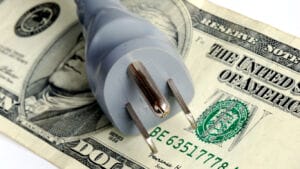No matter the type of your business, creating a high risk merchant account is in your best interest. Customers don’t always have cash with them so as a seller, you will need a way to process credit and debit card payments, electronic payments, mobile payments, etc. So, opening a merchant account is necessary for any firm and it is generally an easy process. However, if for some reason your business falls into the high-risk category, then you will need to look for a high-risk merchant account provider as most banks and payment processors tend to avoid high-risk merchants.
What Are High Risk Merchant Accounts?
A merchant account is an account that has been specially made to receive funds from sales, and source of funds for disputes, refunds, etc. It is an agreement between a business owner and the payment processor that allows the merchant to accept and process credit card and other forms of electronic payments.
A high-risk merchant account, as the name suggests, is a merchant account that is used for payment processing by merchants or businesses that are flagged as high risk by payment processors and banks. Since high risk businesses are more prone to fraud and chargebacks, they generally have to pay higher fees for the merchant services. It is possible for the bank to place a rolling reserve on the account if your business has history that shows many chargebacks and refunds. The rolling reserve consists of money that is used to provide cover in case of chargebacks or fraud.
To better understand a high-risk merchant account, it is important to learn about the key factors that flag a merchant as high-risk.

Factors for Being a High-Risk Merchant
Financial institutions can determine whether or nota business is high risk during the underwriting process of the account application. They consider a number of key factors. These include (but not limited to) the following:
High Risk of Chargebacks
Payment processors and financial institutions like Wells Fargo, Chase, and PayPal have flagged certain industries as high-risk due to the likelihood that customers will try to dispute the charges and request a chargeback. Usually, what happens is that customers call their credit card company and claim that they didn’t authorize the transaction. Because of this, the seller will then have to provide a refund. Even if you are a stable and reputable company, with a good history of collecting payments on time, your customer profiles place you in the category of high-risk.
High Risk of Fraud
This includes any industry that has a high occurrence of money laundering, credit card fraud, identity theft, or other criminal activity. Offshore companies are usually flagged for this.
Credit and Payment History
Your personal or company’s credit score is another high-risk factor. The number of chargebacks that you have had in the past are also considered. If your business or industry has any of these factors, then it is likely that you will go through a longer approval process when you apply for a merchant account with a payment processor. You will also be asked to submit more documents.
Recurring Bill Payments
Many companies use a recurring or continuity billing model: memberships, streaming services, post-paid phone services, etc. While this is part of any subscription service, there are more cases of customers complaining that they are being charged without signing up or that they have already cancelled their subscription.
Highly Regulated Industries
Some payment processors will refuse to open merchant accounts for a business that is involved in nutraceutical, collection agency, e-cigarettes, firearms, CBD, travel industry, etc.
Steps to Get a Merchant Account Approved:
Accepting credit card payments is generally straightforward, but if your business is flagged as high-risk, then it can be quite challenging and you are likely to be denied by most payment processors and merchant account providers. Fortunately, there are some ways to improve your chances of getting a merchant account approved. Here are some key steps you should consider following:
Explain Your Business’s Nature
It is recommended that you try to explain the nature of your business well. You can do this by writing a cover letter that highlights the strengths of your business, e.g.your competitive advantage, the quality of your products/services, your sales record, etc. This shows that your business is stable and it is less prone to the risk of fraud and the possibility of chargebacks.
Make Sure to Mention Any Anti-Fraud and Anti-Chargeback Measures
Don’t forget to mention any proactive measures that you are taking against high credit card chargebacks and fraud. This can include any security systems on your website, customer protection, customer service, or even the communication strategies you have that keep your customers informed about totals fees or future payments.
Mention Investor Funding
If your business has been open for a while, then you have an advantage. But if you are a startup, then it is highly recommended that you mention any investor funding. This will assure the high-risk merchant account provider that there is no risk of your company discontinuing services and shutting down.
Be Transparent About Your Cash Flow
Show the amount of transactions and sales you get, in addition to your cash flow both into and out of your business. Your trade volume will confirm that you are a successful business. Even if you do receive a few chargebacks here and there, it’s a small percentage of the successful number of payments that are made every month.
Prove Your Fulfillment Duration
Last but not least, prove your fulfillment duration i.e. how long it takes for you to deliver a product/service once the order has been placed. Most chargebacks are caused by customers that cancel a purchase due to slow delivery. A short fulfillment duration considerably increases your chances of getting a merchant account approved.
CONCLUSION
With traditional payment processors, the approval process can take from two days to a few weeks. Most merchant account providers can approve an account in a few business days. However, if you are a high-risk business and/or you don’t provide all information upfront, it will take longer.
 Author: Mark Sands, the co-founder of High Risk Merchant Account LLC, is an authoritative expert in the high-risk merchant account space. Mark has decades of experience in the payment industry & enjoys writing on entrepreneurial-related topics.More information here.
Author: Mark Sands, the co-founder of High Risk Merchant Account LLC, is an authoritative expert in the high-risk merchant account space. Mark has decades of experience in the payment industry & enjoys writing on entrepreneurial-related topics.More information here.




